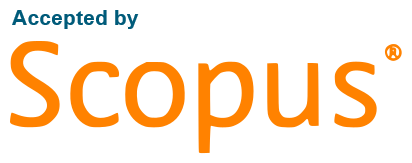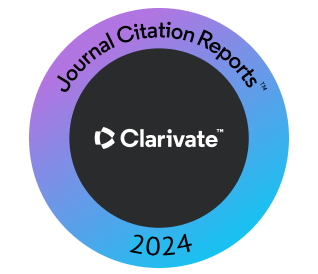Scalable and Efficient Multi-Class Brain Tumor Classification with a Compact Hybrid Deep Learning Model for Real-Time Applications
DOI:
https://doi.org/10.14500/aro.12017Keywords:
Brain tumor classification, Deep learning, Medical diagnostics, Real-time applications, Scalable AI solutionsAbstract
Medical diagnostics require brain tumor classification to operate in real-time so the task demands accurate results with efficient processing abilities. A new hybrid deep learning solution merges convolutional neural networks (CNNs) with support vector machines (SVMs) to improve classification results as this paper describes. A total of four tumor categories including glioma, meningioma, and pituitary tumors together with no tumor appearance contribute to the magnetic resonance imaging (MRI) dataset are used for analysis. We applied and organized three pre-trained deep learning models: Alex-Net, DarkNet-19, and ResNet-50 for comparison. A newly engineered compact CNN model linked with an SVM classifier brought decreased model dimensions while keeping excellent accuracy rates. A proposed compact CNN model delivers 97.50% accuracy through its smaller 2.38 MB size and additional SVM integration results in 97.45% accuracy using 1.43 MB. A Graphical User Interface (GUI) system comprising automated tumor classification capabilities is created to improve real-time systems that visualize MRI scans and illustrate predicted labels in addition to displaying confidence scores. A GUI enables smooth access to the trained model while being suitable for medical practice mobile healthcare environments and edge computing needs. The proposed system shows that lightweight architectures work excellently in real-time system applications especially when used for edge computing and mobile healthcare frameworks. The proposed solution demonstrates superiority over established models through its ability to scale efficiently.
Downloads
References
Abdulaziz, A.S., and Dawood, A., 2023. Vowels’ Articulatory Location Classification based on Formant Frequency. In: 2023 International Conference on Decision Aid Sciences and Applications (DASA). IEEE, United States, pp. 12-16. DOI: https://doi.org/10.1109/DASA59624.2023.10286585
Abdullah, M.A.M., Mohammed, A.A., and Awad, S.R., 2024. RockDNet: Deep learning approach for lithology classification. Applied Sciences, 14(13), p.5511. DOI: https://doi.org/10.3390/app14135511
Ahmmed, S., Podder, P., Mondal, M.R.H., Rahman, S.M.A., Kannan, S., Hasan, M.J., Rohan, A., and Prosvirin, A.E., 2023. Enhancing brain tumor classification with transfer learning across multiple classes: An in-depth analysis. BioMedInformatics, 3(4), pp.1124-1144. DOI: https://doi.org/10.3390/biomedinformatics3040068
Akinbo, R.S., and Daramola, O.A., 2021. Ensemble machine learning algorithms for prediction and classification of medical images. In: Machine Learning Algorithms Models Application. Vol. 10. BoD - Books on Demand, Germany.
Alhafidh, B.M.H., Daood, A.I., and Allen, W.H., 2018. Comparison of Classifiers for Prediction of Human Actions in a Smart Home. In: 2018 IEEE/ACM Third International Conference on Internet-of-Things Design and Implementation (IOTDI). IEEE, United States, pp. 287-288. DOI: https://doi.org/10.1109/IoTDI.2018.00043
Alhafidh, B.M.H., Hagem, R.M., and Daood, A.I., 2022. Face Detection and Recognition Techniques Analysis. In: 2022 International Conference on Computer Science and Software Engineering (CSASE). IEEE, United States, pp. 265-270. DOI: https://doi.org/10.1109/CSASE51777.2022.9759573
Al-Jammas, M.H., Al-Sabawi, E.A., Yassin, A.M., and Abdulrazzaq, A.H., 2024. Brain tumors recognition based on deep learning. E-Prime-Advances in Electrical Engineering, Electronics and Energy, 8, p.100500. DOI: https://doi.org/10.1016/j.prime.2024.100500
Al-Mukhtar, M., Morad, A.H., Hussein, H.L., and Al-Hashimi, M.H., 2024. Brain tumor segmentation using enhancement convolved and deconvolved CNN model. ARO-The Scientific Journal of Koya University, 12(1), pp.88-99. DOI: https://doi.org/10.14500/aro.11333
Awad, S.R., and Alghareb, F.S., 2025. Encoding-based machine learning approach for health status classification and remote monitoring of cardiac patients. Algorithms, 18(2), p.94. DOI: https://doi.org/10.3390/a18020094
Awad, S.R., Sharef, B.T., Salih, A.M., and Malallah, F.L., 2022. Deep learning based Iraqi banknotes classification system for blind people. Eastern-European Journal of Enterprise Technologies, 1(2), p.115. DOI: https://doi.org/10.15587/1729-4061.2022.248642
Bérété, M., Echtioui, A., Sellami, L., and Hamida, A.B., 2024. Transfer Learning Models for MRI-Based Brain Tumor Detection. In: 2024 IEEE 7th International Conference on Advanced Technologies, Signal and Image Processing (ATSIP). Vol. 1. IEEE, United States, pp.14-19. DOI: https://doi.org/10.1109/ATSIP62566.2024.10639035
Daood, A., Al-Saegh, A., and Mahmood, A.F., 2023. Handwriting detection and recognition of Arabic numbers and characters using deep learning methods. Journal of Engineering Science and Technology, 18(3), pp.1581-1598.
Divya, S., Suresh, L.P., and John, A., 2020. A Deep Transfer Learning Framework for Multi Class Brain Tumor Classification Using MRI. In: 2020 2nd International Conference on Advances in Computing, Communication Control and Networking (ICACCCN). IEEE, United States, pp.283-290. DOI: https://doi.org/10.1109/ICACCCN51052.2020.9362908
Ganaie, M.A., Hu, M., Malik, A.K., Tanveer, M., and Suganthan, P.N., 2022. Ensemble deep learning: A review. Engineering Applications of Artificial Intelligence, 115, p.105151. DOI: https://doi.org/10.1016/j.engappai.2022.105151
Iffath, F., Dey, L., and Gavrilova, M.L., 2024. Enhancing Brain Tumor Diagnosis through Adaptive Feature Aggregation based Transfer Learning. In: 2024 IEEE 19th Conference on Industrial Electronics and Applications (ICIEA). IEEE, United States, pp.1-6. DOI: https://doi.org/10.1109/ICIEA61579.2024.10664936
Jana, N.D., Dhar, S., Ghosh, S., Phukan, S., Gogoi, R., and Singh, J., 2023. An Ensemble of Machine Learning Models Utilizing Deep Convolutional Features for Medical Image Classification. In: International Conference on Advanced Network Technologies and Intelligent Computing. Springer Nature Switzerland, Cham, pp. 384-396. DOI: https://doi.org/10.1007/978-3-031-64070-4_24
Jasim, A.M., Awad, S.R., Malallah, F.L., and Abdul-Jabbar, J.M., 2021. Efficient Gender Classifier for Arabic Speech Using CNN with Dimensional Reshaping. In: 2021 7th International Conference on Electrical, Electronics and Information Engineering (ICEEIE). IEEE, United States, pp. 1-5. DOI: https://doi.org/10.1109/ICEEIE52663.2021.9616930
Karim, P.J., Mahmood, S.R., and Sah, M., 2023. Brain tumor classification using fine-tuning based deep transfer learning and support vector machine. International Journal of Computing and Digital Systems, 13, pp.83-96. DOI: https://doi.org/10.12785/ijcds/130108
Kokhazadeh, M., Keramidas, G., Kelefouras, V., and Stamoulis, I., 2024. Denseflex: A Low Rank Factorization Methodology for Adaptable Dense Layers in DNNs. In: Proceedings of the 21st ACM International Conference on Computing Frontiers. Association for Computing Machinery, United States, pp.21-31. DOI: https://doi.org/10.1145/3649153.3649183
Maram, B., and Rana, P., 2021. Brain Tumour Detection on Brats 2020 Using U-Net. In: 2021 9th International Conference on Reliability, Infocom Technologies and Optimization (Trends and Future Directions) (ICRITO). IEEE, United States, pp.1-5. DOI: https://doi.org/10.1109/ICRITO51393.2021.9596530
Mavaddati, S., 2024. Brain Tumors Classification Using Deep Models and Transfer Learning. Multimedia Tools and Applications, pp.1-32. DOI: https://doi.org/10.1007/s11042-024-20141-x
Mohammed, A.A., Awad, S.R., Abdullah, M.A.M., Elbasi, E., and Woo, W.L., 2024. Quantifying the Impact of Watermarking on Deep Learning Accuracy in Medical Image Classification. IEEE Access, United States. DOI: https://doi.org/10.1109/ACCESS.2024.3486757
Mohammed, M.R., and Daood, A., 2021. Smart surveillance system to monitor the committed violations during the pandemic. International Journal of Computing and Digital System. 11, pp.1415-1426.
Müller, D., Soto-Rey, I., and Kramer, F., 2022. An analysis on ensemble learning optimized medical image classification with deep convolutional neural networks. IEEE Access, 10, pp.66467-66480. DOI: https://doi.org/10.1109/ACCESS.2022.3182399
Musa, M.N., 2024. MRI-based brain tumor classification using resnet-50 and optimized softmax regression. Jurnal Infotel, 16(3), pp.598-614. DOI: https://doi.org/10.20895/infotel.v16i3.1175
Naidu, G., Zuva, T., and Sibanda, E.M., 2023. A Review of Evaluation Metrics in Machine Learning Algorithms. In: Computer Science On-line Conference. Springer International Publishing, Cham, pp.15-25. DOI: https://doi.org/10.1007/978-3-031-35314-7_2
Neamah, K., Mohamed, F., Waheed, S.R., Kurdi, W.H.M., Yaseen, A., and Kadhim, K.A., 2024. Utilizing deep improved resnet50 for brain tumor classification based MRI. IEEE Open Journal of the Computer Society, 99, pp.1-12. DOI: https://doi.org/10.1109/OJCS.2024.3453924
Obi, J.C., 2023. A comparative study of several classification metrics and their performances on data. World Journal of Advanced Engineering Technology and Sciences, 8(1), pp.308-314. DOI: https://doi.org/10.30574/wjaets.2023.8.1.0054
Onuiri, E.E., John, A., and Umeaka, K.C., 2024. MRI-based brain tumour classification using convolutional neural networks: A systematic review and meta-analysis. Technology, 7(4), pp.27-46. DOI: https://doi.org/10.52589/BJCNIT-LOYYI2RS
Pan, T., Chen, Y., Feng, H., Xu, Z., Li, Q., and Xu, W., 2020. From Coarse to Fine: A Two-Stage Network for Dense Haze removal. In: 2020 IEEE 5th International Conference on Signal and Image Processing (ICSIP). IEEE, United States, pp.1050-1055. DOI: https://doi.org/10.1109/ICSIP49896.2020.9339349
Raja, V.J., Dhanamalar, M., Solaimalai, G., Rani, D.L., Deepa, P., and Vidhya, R.G., 2024. Machine Learning Revolutionizing Performance Evaluation: Recent Developments and Breakthroughs. In: 2024 2nd International Conference on Sustainable Computing and Smart Systems (ICSCSS). IEEE, United States, pp.780-785. DOI: https://doi.org/10.1109/ICSCSS60660.2024.10625103
Ramanagiri, A., Mukunthan, M., and Balamurugan, G., 2024. April. Enhanced Brain Tumor Detection Using Resnet-50. In: 2024 10th International Conference on Communication and Signal Processing (ICCSP). IEEE, United States, pp.1708-1711. DOI: https://doi.org/10.1109/ICCSP60870.2024.10543742
Rasool, M., Noorwali, A., Ghandorh, H., Ismail, N.A., and Yafooz, W.M.S., 2024. Brain tumor classification using deep learning: A state-of-the-art review. Engineering, Technology and Applied Science Research, 14(5), pp.16586 16594. DOI: https://doi.org/10.48084/etasr.8298
Sahaai, M.B., Jothilakshmi, G.R., Ravikumar, D., Prasath, R., and Singh, S., 2022. ResNet-50 based deep neural network using transfer learning for brain tumor classification. AIP Conference Proceedings, 2463(1), p.020014. DOI: https://doi.org/10.1063/5.0082328
Santoso, I.B., Supriyono, and Utama, S.N., 2024. Multi-model of convolutional neural networks for brain tumor classification in magnetic resonance imaging images. International Journal of Intelligent Engineering and Systems, 17(5), pp.741-758. DOI: https://doi.org/10.22266/ijies2024.1031.56
Shamshad, N., Sarwr, D., Almogren, A., Saleem, K., Munawar, A., Rehman, A.U., and Bharany, S., 2024. Enhancing brain tumor classification by a comprehensive study on transfer learning techniques and model efficiency using MRI datasets. IEEE Access, 12, pp.100407-100418. DOI: https://doi.org/10.1109/ACCESS.2024.3430109
Sharma, A.K., Nandal, A., Dhaka, A., Zhou, L., Alhudhaif, A., Alenezi, F., and Polat, K., 2023. Brain tumor classification using the modified resnet50 model based on transfer learning. Biomedical Signal Processing and Control, 86, p.105299. DOI: https://doi.org/10.1016/j.bspc.2023.105299
Srinivas, C., Nandini Prasad, K.S., Zakariah, M., Alothaibi, Y.A., Shaukat, K., Partibane, B., and Awal, H., 2022. Deep transfer learning approaches in performance analysis of brain tumor classification using MRI images. Journal of Healthcare Engineering, 2022(1), p.3264367. DOI: https://doi.org/10.1155/2022/3264367
Ullah, N., Javed, A., Alhazmi, A., Hasnain, S.M., Tahir, A., and Ashraf, R., 2023. TumorDetNet: A unified deep learning model for brain tumor detection and classification. PLoS One, 18(9), p.e0291200. DOI: https://doi.org/10.1371/journal.pone.0291200
Xia, H., Zhuge, R., Li, H.S., Song, S., Jiang, F., and Xu, M., 2018. Single image rain removal via a simplified residual dense network. IEEE Access, 6, pp.66522-66535. DOI: https://doi.org/10.1109/ACCESS.2018.2879330
Yadav, R.K., Mishra, A.K., Saini, J.B., Pant, H., Biradar, R.G., and Waghodekar, P., 2024. A model for brain tumor detection using a modified convolution layer resnet-50. Indian Journal of Information Sources and Services, 14(1), pp.29-38. DOI: https://doi.org/10.51983/ijiss-2024.14.1.3753
Downloads
Published
How to Cite
Issue
Section
License
Copyright (c) 2025 Sohaib R. Awad , Amar I. Daood, Akram A. Dawood

This work is licensed under a Creative Commons Attribution-NonCommercial-ShareAlike 4.0 International License.
Authors who choose to publish their work with Aro agree to the following terms:
-
Authors retain the copyright to their work and grant the journal the right of first publication. The work is simultaneously licensed under a Creative Commons Attribution License [CC BY-NC-SA 4.0]. This license allows others to share the work with an acknowledgement of the work's authorship and initial publication in this journal.
-
Authors have the freedom to enter into separate agreements for the non-exclusive distribution of the journal's published version of the work. This includes options such as posting it to an institutional repository or publishing it in a book, as long as proper acknowledgement is given to its initial publication in this journal.
-
Authors are encouraged to share and post their work online, including in institutional repositories or on their personal websites, both prior to and during the submission process. This practice can lead to productive exchanges and increase the visibility and citation of the published work.
By agreeing to these terms, authors acknowledge the importance of open access and the benefits it brings to the scholarly community.
Accepted 2025-04-19
Published 2025-05-03
















 ARO Journal is a scientific, peer-reviewed, periodical, and diamond OAJ that has no APC or ASC.
ARO Journal is a scientific, peer-reviewed, periodical, and diamond OAJ that has no APC or ASC.